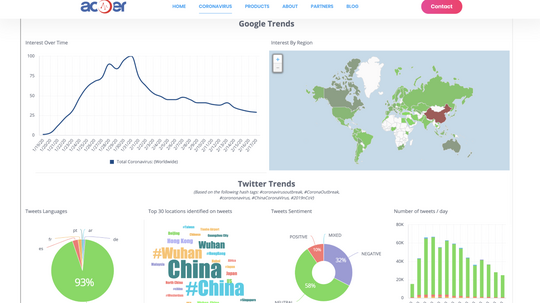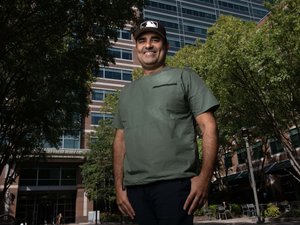
Jim Nasr thinks American health care is long overdue for a bit of Silicon Valley-styled disruption. Through his software company Acoer, he plans to use blockchain to help transform the health care industry.
“Health care is ineffective,” said Nasr, founder and CEO of Acoer. “It’s expensive, inefficient, and opaque. Health care is in many ways decades behind other industries from an innovation and customer-centric perspective.”
Founded in 2014, Acoer is a software as a service company that develops health care technologies, such as APIs (application program interfaces), which let computers and programs easily communicate. The company’s two main products include HashLog, a real-time data visualization engine, which Acoer has used to track and visualize the spread of the coronavirus, and HashLoad, a blockchain-enabled data collaboration tool, designed to allow researchers to share files and data securely with third parties.
By injecting blockchain into the mix, Nasr said Acoer can help provide additional security and verifiability for the software. Blockchain allows the company to “impute computational trust,” he said. “It allows for a secure exchange of information in a way that’s tamper-proof and real-time auditable.”
Nasr brings to Acoer years of experience working in the health care sector, including a stint at the Centers for Disease Control.
“I’ve spent five years observing the health care world from inside-out,” said Nasr. “I’ve observed what’s happening, where technology has been, where there has been a dearth of innovation and real opportunities to move the space forward.”
Headquartered in Atlanta, Acoer employs six employees and has been entirely self-funded, said Nasr.
“I’m a big believer in pressure-testing ideas with a real market and real users, using sweat equity and personal funds,” he said. “The more real a business is, the more likely that, when you do raise money, you have more control over the destiny of the business.”
The company is currently working with medical examiners and forensic pathologists at the University of Alabama in Birmingham to track mortality data related to substance abuse, particularly as it relates to the opioid epidemic. Nasr declined to name his other clients but said Acoer is working with a big pharma company on the use of HashLoad.
Moving forward, Nasr hopes blockchain will enable Acoer to help demystify some of the more shadowy aspects of the health care industry by providing secure, decentralized and easily verifiable records. He clarified that Acoer wouldn’t solve all of the health care industry’s problems but that it might be part of the solution.
“It’s not a magic bullet,” he said. “In and of itself it won’t transform the industry. But it can be a component along with other interoperable, usable technologies.”








